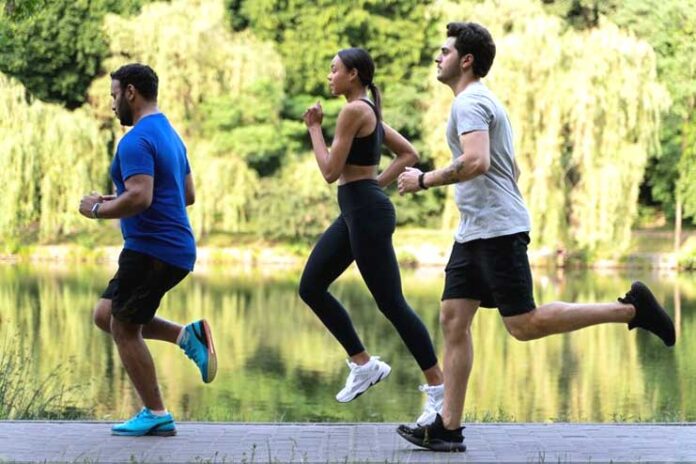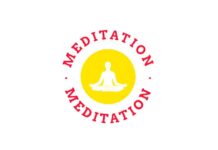Affiliate Disclaimer
Some links in this article are affiliate links. We may earn a small commission if you make a purchase through these links, at no extra cost to you. We only recommend products we find useful to our readersImagine a world where taking your medication every day is an exercise routine. Picture a morning when the sun rises, and a landscape filled with people wearing sneakers rather than pill bottles is illuminated. A world in which your heartbeat is the symphony of health. Exercise in this colorful scene becomes a potent, healing remedy that goes beyond the typical gym regimen.
Entering this realm of dynamic healing, we explore the notion that exercise is a powerful tool that may heal, revitalize, and enliven our whole being, not just a way to shape the body. We will provide why sweating it out: 12 compelling reasons why physical activity is the most effective medication you can take.
It is difficult to deny the advantages regular exercise and physical activity have on our health. Exercise is good for everyone, regardless of any age, gender, or level of physical fitness. Engaging in physical activity can enhance mental well-being, assist in weight management, lower the risk of illness, fortify bones and muscles, and facilitate daily tasks.
Explore the world of physical activity with us. Are you prepared to discover the 12 reasons why physical activity is your best medicine? Let’s get going.
1. The Endorphin Boost
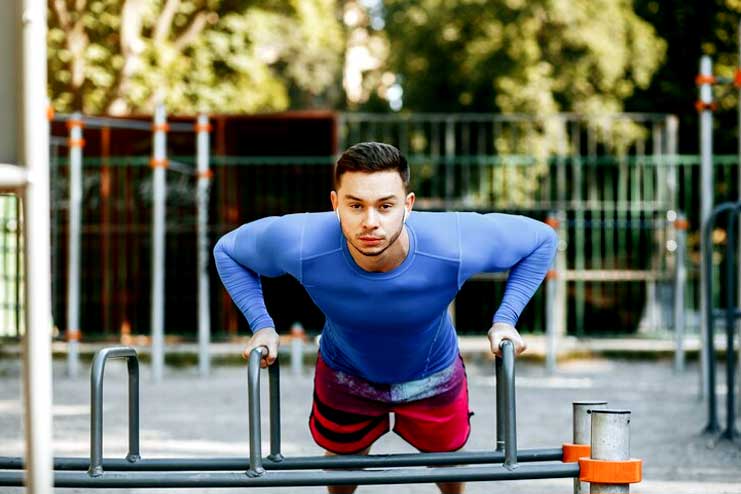
The endorphin rush that comes from exercise is a natural medicine for stress in the fast-paced world of modern life, where it is an unwanted companion. Endorphins are substances that your body releases when you exercise. These endorphins work with our brain’s receptors to lessen our experience of pain.
Like morphine, endorphins also cause a happy feeling to be released into the body. Because endorphins have analgesic properties, they lessen the experience of pain. As sedatives, they also function. They are produced in the brain, the spinal cord, and numerous other body organs and released in reaction to neurotransmitter chemicals found in the brain. Certain painkillers attach to the same neuron receptors that endorphins bind to.
Many researchers have revealed when we indulge in spicy meals or dark chocolate, the compounds in the chocolate cause our bodies to release endorphins. The same is true with spicy food—basically because heat hurts. Our body releases endorphins in reaction to the discomfort, which makes us feel happy and relieved.
2. Cardiovascular Strength

Our circulatory system is a silent hero in the rhythm of our everyday existence. Exercising is like giving your heart a customized training program. Our cardiovascular fitness, also known as cardiorespiratory fitness (CRF), reveals numerous indicators of health and future health prospects. In other words, CRF gauges how efficiently our body absorbs oxygen and distributes it to our muscles and organs across extended activity sessions.
Cardiovascular exercise involves prolonged action of your body’s big muscles while maintaining a heart rate of at least 50% of its maximum. Frequent aerobic exercise will strengthen your cardiovascular system and increase the number of capillaries that carry oxygen to your muscle cells.
Think of the heart as the focal point of this physiological change. Our heart is forced to pump blood more forcefully during each workout, improving cardiovascular endurance. Cardiovascular exercise has long been recognized as the foundation of any successful fitness regimen and the secret to a longer, happier life. The benefits are equally remarkable: enhanced mood, deeper sleep, and a lower chance of heart disease, diabetes, stroke, and some cancers, to name a few.
Regular exercise has been shown to affect the cardiovascular system in well-conducted long-term research positively. In the MRFIT research, leisure-time exercise decreased cardiovascular mortality over a 16-year follow-up period in men at high risk of coronary heart disease. Older adults who walked more than 1.5 kilometres per day in the Honolulu Heart Study had a similar lower risk of coronary disease.
3. Stress Reduction

Stress frequently plays a persistent role in the turbulent rhythm of modern life, yet exercise is a powerful counterbalance readily available to us. Exercise in almost any form, including yoga and aerobics, can help reduce stress. You feel better about yourself and your health overall when you exercise, which makes you want to do more things every day.
According to research, physical activity and exercise cause the brain’s endorphins, which function as natural painkillers. They also enhance sleep quality, which lowers stress levels. Your body can manufacture endorphins through deep breathing, massage therapy, acupuncture, and meditation.
Think about easy yet efficient ways to include stress-relieving hobbies daily. Almost any physical activity can improve your health and reduce stress levels. Choosing an activity you enjoy is what matters most. Incorporate activities such as walking, jogging, stair climbing, dancing, biking, yoga, tai chi, gardening, weightlifting, and swimming.
Related Articles:
4. Immune System Support
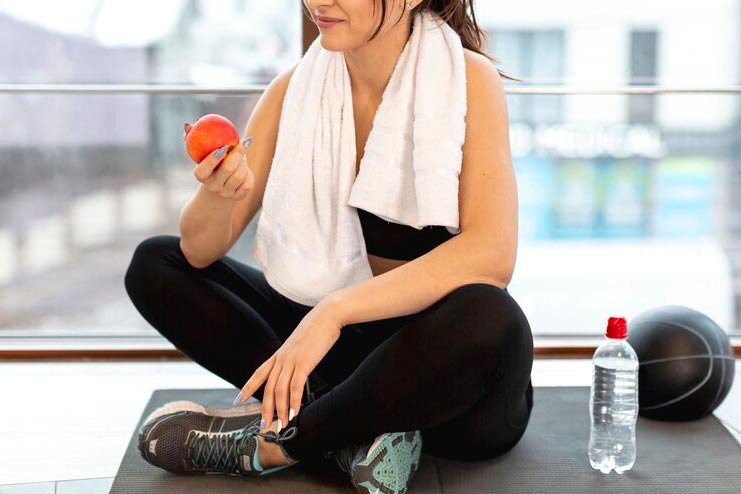
The relationship between physical activity and a more robust immune system is fundamental to the continuous health quest. Frequent exercise is protective against disease and a stimulant for general health. Exercise not only encourages the immune cells to circulate throughout the body during physical activity but also prolongs their presence for up to three hours after physical activity.
It gives our immune system more time to recognize foreign invaders and prevent illness. Every exercise session becomes an active step towards preventing sickness outside the gym. Leading an active lifestyle strengthens our immune systems and builds a barrier that protects our general health.
Physical activity can modulate the immune system. Pro- and anti-inflammatory cytokines are generated during and after physical activity, and there is an increase in lymphocyte circulation and cell recruitment. Regular physical activity has a bearing on the reduced incidence, severity of symptoms, and fatality rates associated with viral infections in individuals.
Next Article: 10 Possible Ways to Boost Immunity For a Healthy Living
5. Improved Sleep Quality

The relationship between exercise and better sleep patterns reveals a potent ally in our quest for a restful night’s sleep. Research suggests that adults in good health can sleep better with regular exercise. Regular, moderate exercise can increase the length and quality of sleep and reduce time it takes to fall asleep. Acute physical activity, on the other hand, may have a minor impact on these factors.
According to research that is frequently conducted, exercise has a good effect on sleep. Adults who exercise moderately to vigorously report higher quality sleep because they sleep longer at night and experience a shorter sleep onset or the time it takes to fall asleep. Furthermore, exercise might lessen drowsiness during the day and, sometimes, the need for sleep aids.
Think about activities that fit your schedule and tastes when creating an exercise regimen that can help you fall asleep. Exercises in the early evening, including light stretching or aerobics, can tell your body it’s time to wind down. Using mindfulness techniques, such as meditation, after working out improves relaxation and creates a restful sleep environment.
6. Mental Clarity and Focus

The intriguing story of the close relationship between physical exercise and cognitive performance becomes apparent in the quest for mental clarity. Numerous studies have shown how brain plasticity is impacted by exercise, which in turn influences health and cognition. Exercise is more than just a physical remedy; it also acts as a stimulant for improved mental acuity, increased concentration, and general cognitive function.
Exercise can also indirectly improve memory and thinking by enhancing mood and sleep quality and lowering stress and anxiety. Cognitive impairment is often caused by or exacerbated by issues in these domains. ‘Feeling good’ hormones like serotonin and endorphins are released by exercise, which lifts your spirits.
Additionally, it increases your fitness, which might uplift your spirits. Engaging in physical exercise can help divert your attention from negative thought patterns.
Think of the person who gets a mental boost from a fast workout or brisk stroll and approaches activities with renewed energy and productivity. Getting moving can improve your ability to think, learn, solve problems, and maintain emotional equilibrium. It helps lessen anxiety or despair and enhances memory. Engaging regular physical activity can help lower your chance of dementia and other forms of cognitive decline.
7. Weight Management
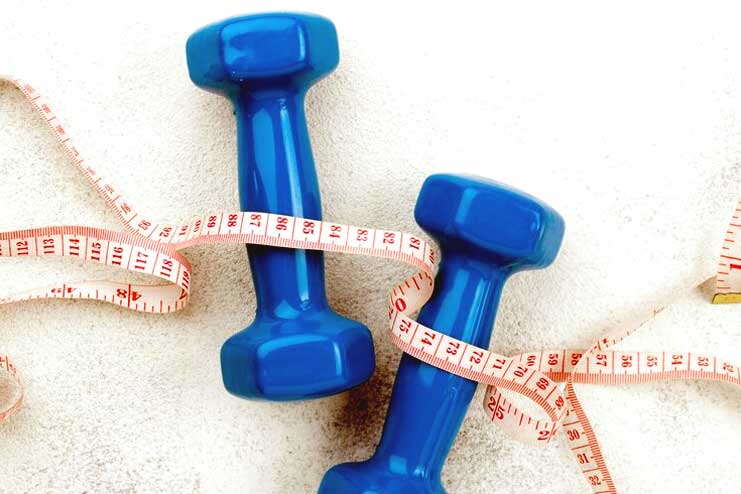
When people engage in physical exercise, their overall energy expenditure rises, which can aid in energy balance or even weight loss—if they don’t overeat to make up for the extra calories they burn. Exercise slows the growth of abdominal obesity by reducing body fat and around the waist.
Studies indicate that increasing physical activity during weight loss raises the amount of calories the body burns. We can lose weight by creating a calorie deficit by burning calories through physical exercise and consuming fewer calories overall. Gaining muscle mass through weightlifting, push-ups, and other muscle-strengthening exercises increases the body’s ability to burn energy throughout the day, even at rest, and facilitates weight control.
Engaging in physical activity can enhance mental well-being, assist in weight management, lower the risk of illness, fortify bones and muscles, and facilitate daily tasks—adults who engage in moderate-to-intense physical activity and reduce their sitting time benefit in various ways. With little to no long-term impact on body weight, exercise training leads to a healthier body composition.
8. Social Connection
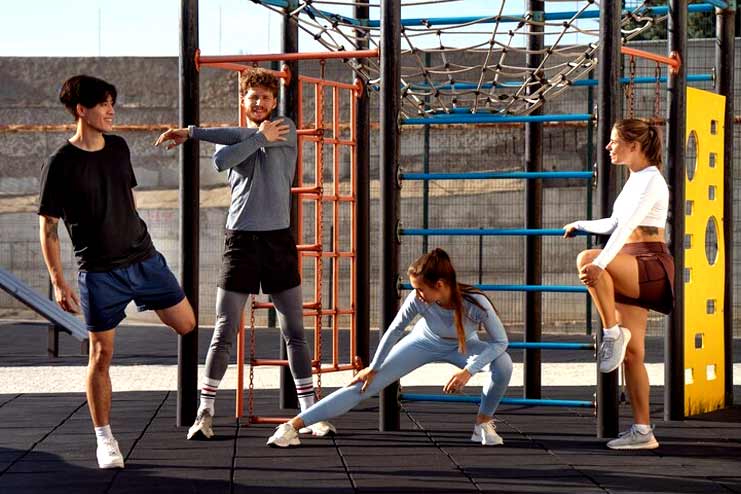
Physical activity and social interaction are closely interwoven in the tapestry of well-being. Exercise programs and team sports go beyond personal health goals to catalyze a deep sense of community. You can anticipate benefits from working out, such as lowered stress levels, boosted confidence, and a support system of friends who encourage you to meet your fitness objectives.
Team sports foster and impart a sense of belonging. Participating in team activities enables stronger social bonds between teammates, coaches, family, and friends—the ideal environment for both mental and emotional development. Team sports bring people together to socialize, communicate, compete, and celebrate—whether on the field, in the arena, or in front of the TV.
Participating in team sports might aid in emotional growth as well. According to Canadian Fitness and Lifestyle Research Institute, working out can induce a unique transient relaxation. These shared activities, which range from yoga groups to running clubs, improve physical well-being and foster connections beyond the gym or sports field.
9. Increased Energy Levels
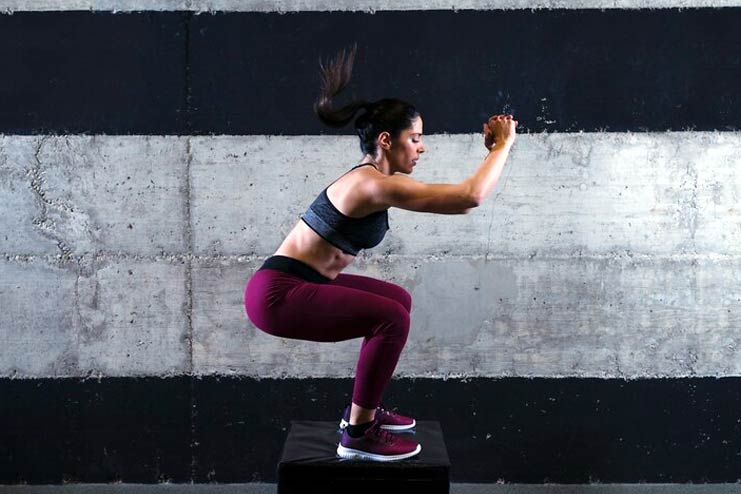
Starting a fitness journey may seem illogical at first—the weariness and sweat drops that come with it—but strangely, it releases a burst of sustained energy. It’s common knowledge that individuals who engage in physical activity burn more calories than those who don’t. However, research indicates that despite leading physically demanding lives, traditional hunter-gatherers burn the same calories as people with access to contemporary amenities.
Engaging in regular physical activity increases our endurance and muscle strength. Exercise improves the efficiency of our circulatory system and delivers nutrients and oxygen to your tissues. Additionally, we will have more energy to complete everyday tasks as our heart and lung health improve.
Integrating exercise into your routine can be manageable in the rush of a busy life. Physical activity, according to the research, should not only involve attending the gym; it can also include planned exercise, sports, housework, walking, dancing, gardening, hiking, swimming, and other leisure activities.
10. Enhanced Mood and Well Being

Our mood is lifted by exercise because it releases feel-good chemicals like serotonin and endorphins into your brain. Also, it increases your level of fitness, which might uplift your spirits. Engaging in physical exercise can also help you break destructive cognitive patterns.
Engaging in physical activity can enhance your well-being and standard of living. Your chances of diabetes, heart disease, cancer, and mental health issues can all rise if you don’t exercise enough. Frequent exercise releases feel-good endorphins and endogenous cannabinoids, naturally occurring chemicals in the brain that resemble cannabis and can improve overall well-being.
People who include exercise in their daily routines frequently report feeling happier, less stressed, and more general well-being. Moving becomes more than just physical activity; it becomes a mental and emotional healer.
Next Read: 14 Easy and Effective Ways to Boost Mood Instantly
11. Longevity Benefits
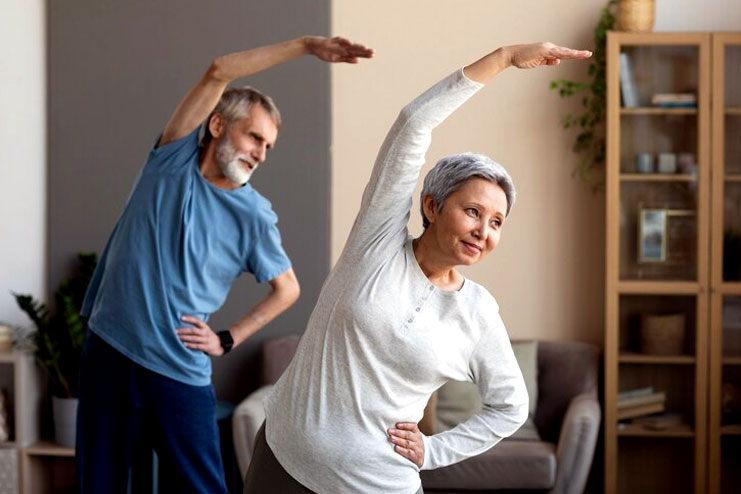
According to a study, physical activity lowers several significant risk factors for mortality, such as dyslipidemia, arterial hypertension, diabetes mellitus type 2, coronary heart disease, stroke, and cancer. When compared to inactive persons, physically active individuals had an approximate 30% to 35% lower all-cause death rate. Cardiovascular disease death risk was decreased in those who exercised two to four times a week over and above the minimal recommendations.
In addition to helping lose weight and lower risk of disease, physical activity also strengthens your bones and muscles and enhances your capacity to carry out daily tasks. Those who engage in moderate-to-intense physical activity and reduce their sitting time as adults can reap some health advantages.
According to a study, there was a decreased relative risk of death for both genders who reported being more physically active and fit.
12. Holistic Health Promotion
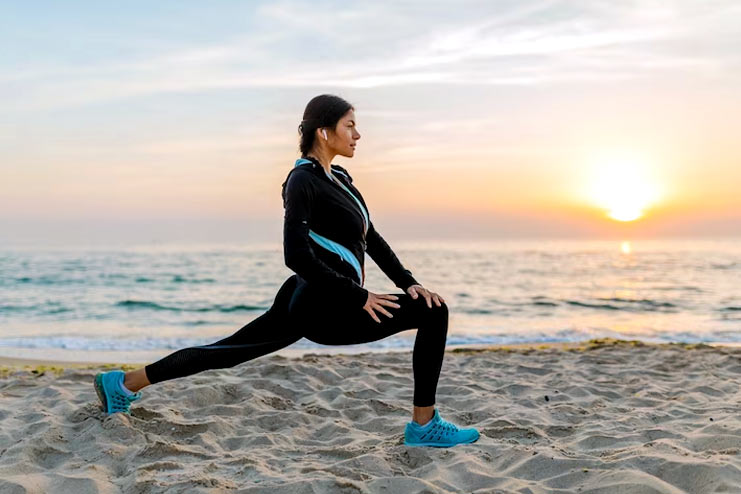
It’s important to emphasize the comprehensive picture that physical activity paints for our well-being as we draw to a close our exploration of its many advantages. Exercise is becoming more than simply a way to tone our bodies; it’s a holistic approach to health that considers our mental, emotional, and social well-being and physical health.
Exercise is more than just a routine; it’s a practical medication that strengthens the heart, improves mental clarity, builds social bonds, and even lengthens life. As we go on our path to holistic health, consider the 12 strong arguments we’ve found, ranging from improved mood and longevity advantages to immune system support and stress reduction. Every action to become a better, happier version of yourself is a step in the right direction.
Conclusion
We’ve looked at the transforming melody of exercise in the symphony of well-being—a powerful medication that works wonders outside of the gym. Let the reminder that every step and every heartbeat is a dosage of vitality for the body, mind, and spirit ring as we go over the analogy of exercise as medicine.
Regular physical activity can benefit one’s psychological well-being, cognitive function, and physical health. Among the many physical advantages are lowered disease risk and enhanced physical performance, fitness, and general quality of life.
We warmly encourage you to make fitness a daily regimen for optimum well-being. Make every workout a deliberate investment in your health.
Other Related Articles:
- 6 Reasons Why You Can’t Sit Cross Legged – Which is Bad
- Reasons Why You Can’t Touch Your Toes
- What Happens If you Don’t Shower After a Workout
References
https://www.cdc.gov/physicalactivity/basics/pa-health/index.htm
https://www.webmd.com/depression/exercise-depression
https://www.mhanational.org/what-are-endorphins#:~:text=Your%20body%20releases%20endorphins%20in,sense%20of%20happiness%20and%20relief.
https://www.fyzical.com/lakewoodranch/blog/What-Is-a-Cardiovascular-Exercise#:~:text=Viable%20options%20include%20hiking%2C%20jogging,blood%20flow%20to%20your%20muscles.
https://www.abbott.com/corpnewsroom/healthy-heart/cardiovascular-fitness–what-it-means-to-your-heart-health.html#:~:text=Your%20cardiovascular%20fitness%2C%20also%20called,during%20prolonged%20periods%20of%20exercise.
https://www.ncbi.nlm.nih.gov/pmc/articles/PMC3396114/#:~:text=Leisure%20time%20exercise%20reduced%20cardiovascular,disease%20in%20the%20MRFIT%20study.&text=In%20the%20Honolulu%20Heart%20Study,their%20risk%20of%20coronary%20disease.
https://adaa.org/understanding-anxiety/related-illnesses/other-related-conditions/stress/physical-activity-reduces-st#:~:text=Exercise%20and%20other%20physical%20activity,your%20body%20to%20produce%20endorphins.
https://www.mayoclinic.org/healthy-lifestyle/stress-management/in-depth/exercise-and-stress/art-20044469#:~:text=Examples%20include%20walking%2C%20stair%20climbing,a%20yoga%20video%20at%20home.
https://www.gundersenhealth.org/health-wellness/move/exercise-and-your-immune-system#:~:text=Not%20only%20does%20exercise%20get,keep%20you%20from%20getting%20sick.
https://www.ncbi.nlm.nih.gov/pmc/articles/PMC7387807/#:~:text=The%20practice%20of%20physical%20exercises,as%20well%20as%20cell%20recruitment.
https://www.sleepfoundation.org/physical-activity#:~:text=Regular%20exercise%20can%20help%20healthy,it%20takes%20to%20fall%20asleep.
https://www.healthdirect.gov.au/exercise-and-mental-health#:~:text=Learn%20more%20here.-,How%20does%20exercise%20help%20my%20mental%20health%3F,you%20from%20negative%20thought%20patterns.
https://www.nature.com/articles/s41430-018-0180-4#:~:text=Overall%2C%20exercise%20training%20results%20in,term%20effect%20on%20body%20weight.
https://www.scientificamerican.com/article/the-exercise-paradox/#:~:text=In%20Brief,with%20access%20to%20modern%20conveniences.
In this Article












